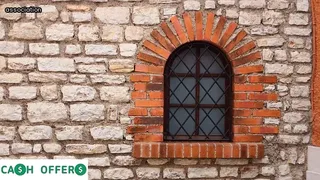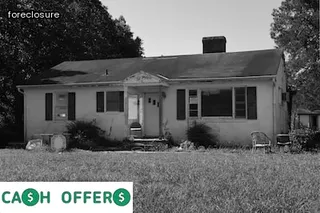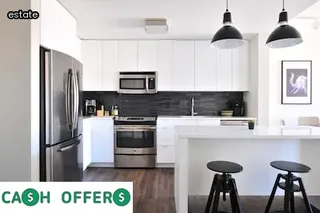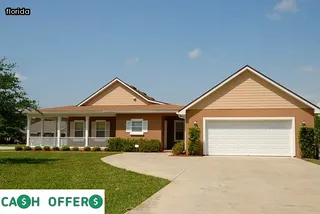Florida Homeowners Association (HOA) fees are important to ensure the community is well maintained and functioning properly. It is essential for all HOA members to understand the regulations associated with delinquent fee payments in order to avoid costly consequences.
In Florida, an HOA can assess late fees at their discretion, however, they must follow state laws when it comes to collecting these fees and any other penalties or interest that may accrue. If the homeowner does not pay their overdue balance within 30 days of receipt of the notice, the HOA can file a lien against the property and even foreclose on it if necessary.
Additionally, HOAs can impose additional fines or suspensions of privileges such as access to communal areas until delinquent dues are paid in full. The best remedy to avoid delinquent HOA fees is knowledge and understanding of regulations associated with payment of fees and prompt payment as soon as possible after receiving a bill each month.

In order for a homeowner's association (HOA) lien to be valid in the state of Florida, certain legal requirements must be met. First, the HOA must have authority to impose assessments and liens under the governing documents.
These documents are typically established by the developer at the time of initial subdivision or condominium formation and can include covenants, declarations, bylaws, and rules. Second, the HOA must be in compliance with all notice requirements when assessing and collecting delinquent dues.
This includes providing written notice of any unpaid assessments due and owing to both the owner and any mortgagees at least 45 days prior to recording a lien. Third, after recording a lien against a property for delinquent dues, if payment is not received within 30 days from that date, then formal foreclosure proceedings may commence.
Finally, it is important to note that no deficiency judgment is available against an owner who has defaulted on his or her assessment obligations in Florida.
In Florida, homeowners may fall delinquent on their HOA dues and if they are unable to make payments, the association may choose to foreclose. The foreclosure process begins when the association records a lien on the property for unpaid dues.
Once the lien is recorded, the homeowner has a set amount of time to pay off the debt or else they risk foreclosure. In most cases, if they do not pay up within this time frame, the association will initiate legal action and file a complaint in court.
This is where things become more serious; if they fail to respond to this complaint within twenty days or so, then a default judgment will be issued against them in favor of the association. If left unresolved, the court may order that the property be sold through a public auction in order to repay any balance owed on delinquent HOA dues.
Ultimately, homeowners should stay current with their HOA dues in order to avoid foreclosure and its associated consequences.

The Notice of Intent for Filing HOA Foreclosure is a legally binding document that is sent by the Homeowners Association (HOA) to the delinquent homeowner. This notice serves as a final warning that the homeowner must pay their delinquent HOA dues in full or risk foreclosure proceedings.
Generally, these notices are sent out when the delinquent amount has reached a certain threshold and other attempts to collect payment have failed. The Notice of Intent informs the homeowner of their obligation to pay and outlines possible consequences if they fail to do so.
It also provides instructions on how to avoid foreclosure and any applicable remedies that may be available. Understanding the implications of this notice is critical for homeowners in Florida, where HOAs can pursue aggressive legal action against delinquent members.
When it comes to understanding delinquent HOA fees in Florida, many homeowners may not realize that bankruptcy could be an option for eliminating these debts. In order to understand the potential of declaring bankruptcy as a remedy for unpaid HOA fees, it is important to understand the consequences of not paying.
These can include liens being placed on your home, foreclosure lawsuits, and even wage garnishment. Fortunately, individuals who have difficulty paying their HOA dues may find relief through filing for Chapter 7 or Chapter 13 bankruptcy.
With Chapter 7 bankruptcy, all unsecured debts such as HOA dues and outstanding fines can be discharged without having to pay them back. On the other hand, with Chapter 13 bankruptcy, homeowners may be able to structure a payment plan to pay off the debt within three or five years.
Additionally, filing for bankruptcy will stop any collection attempts from creditors and prevent further damage to your credit score as long as you remain current on payments after filing. Before considering this option however, it is important to speak with a qualified attorney who specializes in bankruptcy law in order to determine if this is the best path for you.

Consulting a bankruptcy & foreclosure defense lawyer is invaluable when attempting to understand delinquent HOA dues in Florida and the consequences of not paying. A knowledgeable lawyer can provide insight into the payment options available for homeowners, as well as remedies that may be used to avoid foreclosure and other penalties.
Moreover, an experienced lawyer will be able to advise on how best to negotiate with creditors or lenders who are pursuing unpaid fees. With their help, homeowners can gain a better understanding of their legal rights and the potential outcomes of different payment choices.
Furthermore, consulting a bankruptcy & foreclosure defense lawyer may provide insight into applicable regulations that may affect the homeowner’s ability to pay and the potential financial implications thereof. Ultimately, having a lawyer on your side during such processes is essential for protecting one’s financial interests and ensuring all legal obligations are met.
In Florida, Homeowners Associations (HOAs) are limited in the legal consequences they can impose on a homeowner for delinquent dues. Foreclosure is prohibited as a means of collecting dues, and other remedies must be used instead.
HOAs have the authority to place a lien on the property, meaning that it cannot be sold or refinanced until the debt is paid off. This can also cause damage to an owner’s credit score.
Other penalties allowed by law are late fees, interest charges, or even suspending an owner’s use of recreational facilities or voting rights in association decisions. In some cases, an HOA may take a homeowner to court to obtain a judgment against them that could include fines and attorney fees as well as collection of past due amounts.
The best way for homeowners to avoid these limitations is to stay current with their HOA dues and other obligations outlined in their contract with the association.

When a homeowner fails to pay Homeowners Association (HOA) dues, it can lead to a foreclosure of the property. The consequences of this action are serious; not only does the homeowner lose the home, but someone else must then take on the responsibility for paying off the mortgage.
Who is responsible for that payment? In many cases, it depends on how far along in the process the foreclosure is when another party takes over ownership. If there is still an outstanding loan balance due after the sale of the foreclosed property, then whoever purchased it at auction would be responsible for that payment.
However, if no one purchases it and it reverts back to the lender, then they would be responsible for any remaining mortgage payments until they find a new buyer. It is important to understand these delinquent HOA dues consequences in Florida and take appropriate action before a foreclosure occurs.
It is possible to recover a home after an HOA foreclosure, but the process and consequences vary depending on the state and local laws. In Florida, the homeowner has up to one year from the date of foreclosure to redeem their home by paying off the delinquent HOA dues plus any other associated costs.
If a homeowner does not take advantage of this redemption period, their rights in the home will be permanently transferred to the HOA. With this transfer, any equity that was built up in the property will also be lost.
To avoid foreclosure from delinquent HOA dues in Florida, homeowners must stay current with their payments as soon as they fall behind on payments, it is important for them to contact their local state attorney for assistance with understanding all of their options before it is too late. Additionally, there are financial assistance programs available in many areas that can help homeowners pay their delinquent dues or negotiate payment plans with HOAs.

When a homeowner falls behind on their HOA dues in Florida, the consequences can be serious. One of the important questions that must be answered is whether or not there is an obligation to pay assessments during foreclosure.
In most cases, this depends on the type of foreclosure being utilized, as well as the language of the governing documents. Generally, when a property enters into a pre-foreclosure or short sale situation, assessments will continue to accumulate until such time as ownership of the property has been transferred to another party.
Furthermore, when pursuing a judicial foreclosure through court proceedings, any unpaid assessments become part of the debt owed and must be paid in order for title to transfer. On the other hand, when utilizing a non-judicial foreclosure process (in Florida referred to as a “statutory” form) unpaid assessments are not included in the debt owed and may go unpaid if they have accrued prior to notice of default being filed.
Of course, remedies exist for delinquent HOA dues regardless of whether or not foreclosure is pending; these include liens against the property and fines for late payments. Ultimately it is important for homeowners facing foreclosure in Florida to understand their obligations and rights regarding HOA dues so that they can make informed decisions about how best to manage their financial situations.
Homeowners Associations (HOAs) are legal entities that are formed to maintain the common areas of a neighborhood or subdivision. HOAs also provide services to residents, such as landscaping, recreational facilities, and swimming pools. When a homeowner fails to pay their HOA dues in Florida, they can face significant consequences.
The HOA may assess late fees and send letters to the delinquents requiring them to pay the amount due plus any late charges. If payment is not received within the specified time frame, the HOA may place liens on the property for past due dues and other activities related to delinquent accounts. Furthermore, if a lien is placed on a property for delinquent HOA dues, then it could prevent refinancing or selling of the home until all debts are paid off.
In addition, non-payment of HOA dues can result in legal action being taken against homeowners by their respective HOAs. Fortunately, there are remedies available for homeowners who find themselves unable to keep up with their monthly payments. Homeowners can contact their HOA to discuss different payment plans or options that may be available.
Additionally, some states offer programs such as loan deferment and debt forgiveness which may help owners get out of difficult financial situations while keeping up with their payments. It is important for homeowners in Florida who have fallen behind on their HOA dues payments to understand the potential consequences and remedies available so they can make an informed decision about how best to move forward with paying off their debt.

Staying up-to-date on the regulations and fees for homeowners’ associations (HOAs) in Florida is important for avoiding delinquent dues. To ensure compliance, it is essential to understand the consequences of not paying your dues, as well as the remedies available for payment.
It is necessary to be aware of any changes or updates to the regulations and how they may affect you. You should also stay informed about any legal actions taken against HOAs who are not compliant with their responsibilities.
There are a variety of ways to stay informed, including checking websites related to HOA law and speaking with local authorities. Additionally, keeping detailed records of payments and financial statements can help keep track of due dates and avoid delinquencies.
Understanding these laws, regulations, and fees can help make sure that homeowners do not fall behind with their HOA payments.
Homeowner's Association (HOA) Fees are common in Florida and other states. HOA fees are an important part of living in a community; they help to maintain the neighborhood, pay for services, and uphold the standards set by the association.
Typically, these fees are paid annually or monthly and include a set amount as well as any additional assessments made by the association. An HOA fee can cover a variety of costs such as landscaping, security, maintenance of common areas, recreational facilities, and even legal expenses incurred by the HOA if necessary.
In addition to regular dues, homeowners may be responsible for delinquent HOA fees that have gone unpaid for some period of time. Depending on the agreement with the homeowner's association and state laws, there may be consequences for non-payment such as late payment fees, liens placed against properties or other legal action taken by the association.
Fortunately, there are remedies available to homeowners facing delinquent HOA fees such as paying off past due balances or seeking assistance from local programs that provide financial aid to those behind on payments. Understanding all aspects of an HOA fee is essential when considering purchasing a home in an area governed by one.

In Florida, delinquent Homeowners Association (HOA) dues can have significant financial and legal consequences. Understanding the effects of paying late or not at all is essential in ensuring that a homeowner is compliant.
The first consequence of delinquency is the accumulation of interest or late fees. Depending on the HOA agreement, this could be an additional charge for every month that payment is delayed.
Additionally, failure to pay could result in liens being placed against a property as well as legal action from the HOA. In order to avoid these consequences, homeowners should make sure they understand their HOA agreement and keep up to date with payments.
If they are unable to make payments due to financial hardship, they should contact their association immediately and discuss alternative payment options. This could include arranging a payment plan or negotiating reduced fees if it’s within the HOA’s discretion.
It’s important for homeowners in Florida to stay informed about their HOA dues so they can ensure compliance and avoid any negative financial outcomes associated with delinquency.
The statute of limitations for HOA fees in Florida is the same as other kinds of debt; it is generally four years, but can vary depending on the specific association's governing documents. As such, it is important to understand that delinquent HOA dues in Florida may still be legally collectible until this statute of limitations has passed.
Furthermore, unpaid dues may also continue to accrue interest or late fees until they are settled, so it is in a homeowner's best interest to pay their dues promptly. In addition, if a homeowner fails to pay their HOA fees for an extended period of time, the association may file a lien against that person’s property and/or take legal action against them to recoup the money owed.
Ultimately, delinquent HOA dues in Florida can have serious consequences if homeowners fail to meet their financial obligations in a timely manner. Fortunately, there are remedies available for homeowners who find themselves unable to pay their dues before the statute of limitations expires.
Homeowners should work with their HOA board and/or association management company to develop an appropriate payment plan or other affordable solution that meets both parties’ needs.

If no one runs for an HOA board in Florida, the consequences can be severe. Without a functioning board, delinquent HOA dues may go unaddressed and unpaid, making it difficult to maintain the community's common areas and amenities.
This can lead to a decrease in property values and deterioration of the neighborhood. In order to remedy this situation, an individual or group must be willing to step up and run for the board.
If no one is interested in taking on this responsibility, then they must seek out ways to appoint an individual or committee to manage their HOA dues. Failing that, they may need to seek outside help from a legal or financial expert who specializes in HOA management in order to ensure that all delinquent dues are paid and the community remains functional.
In Florida, an HOA lien can last up to seven years. The first step of the process is for the association to file a claim of lien with the clerk's office in the county where the property is located.
This gives notice that delinquent HOA dues have not been paid and that a lien has been placed on the homeowner's property. The lien will remain in place until all delinquent payments, late fees, and other costs associated with collecting the debt are satisfied.
During this time, interest may accrue on the unpaid balance and homeowners may be subject to foreclosure if they fail to pay off their debt within seven years. Furthermore, filing a claim of lien can have negative credit implications for homeowners, making it more difficult for them to borrow money or qualify for loans in the future.
It is important for homeowners facing delinquent HOA dues to understand their rights and obligations in order to avoid long-term consequences such as foreclosure or damaged credit.
The maximum fine an HOA can charge in Florida is dependent on the specific rules set by the individual association. Generally, fines cannot exceed $100 per violation or a total of $1,000 per year for all violations combined.
However, some communities may increase the maximum to up to $500 or 10% of the delinquent amount, whichever is less. Without prior approval from the majority of members in the association, any fines above these amounts are invalid and unenforceable.
It's important for members to understand their rights when paying delinquent HOA dues in Florida so they don't face unexpected penalties that aren't approved by their peers.
In the state of Florida, homeowners associations (HOAs) may be able to pursue super liens on delinquent property owners in order to collect unpaid dues. A super lien is a special claim that an HOA can make against a homeowner's property if they are delinquent in their dues.
This claim supersedes all other liens and claims made by creditors or lenders, meaning it takes priority over any other debt payments. Super liens can help HOAs collect delinquent dues quickly and without having to go through the lengthy legal process of foreclosing on a property.
However, not all states allow for super liens, so it is important for Florida homeowners to understand whether their state allows them before becoming delinquent on HOA dues. Knowing whether or not Florida is a super lien state can help homeowners avoid potential consequences of delinquency, such as foreclosure or bankruptcy.